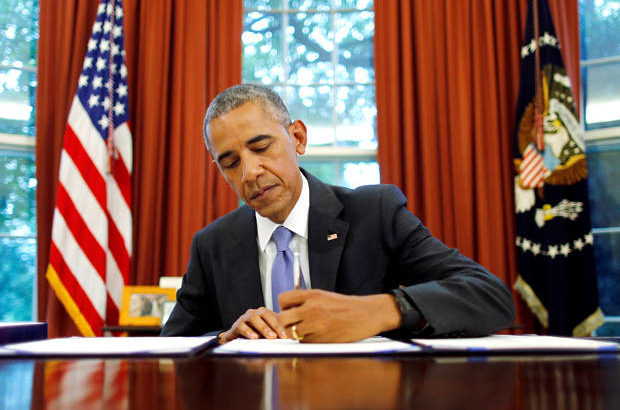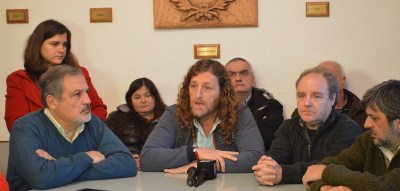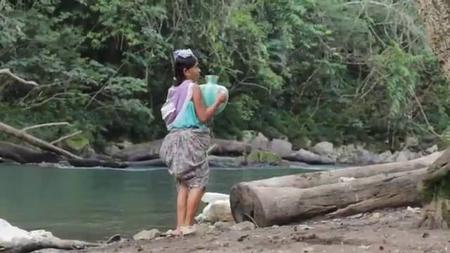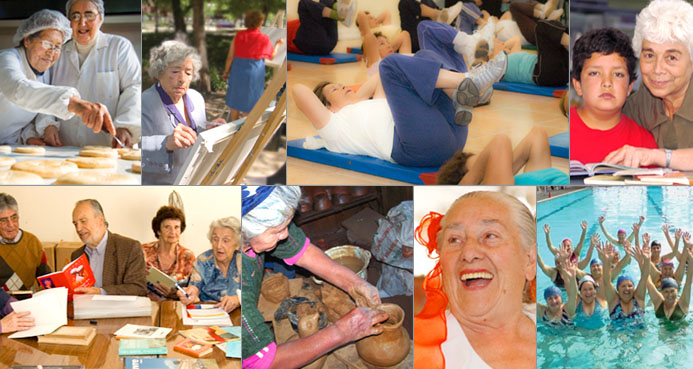Fuente: salon.com / 4 de julio de 2016
A bipartisan bill signed by President Obama will impose a “colonial” control board on Puerto Rico, critics say.
President Obama signed the Puerto Rico Oversight, Management and Economic Stability Act, or PROMESA, on Thursday night, hours before Puerto Rico was obligated to pay $1.9 billion of its $70 billion debt on a July 1 deadline.
Minutes after Obama signed the bill into law, Gov. Alejandro García Padilla issued an executive order authorizing suspension of payments on Puerto Rico’s debt.
PROMESA permits a debt restructuring process, similar to bankruptcy, but at a great cost: In return, the U.S. federal government will impose an unelected control board onto the U.S. territory. This board will control Puerto Rico’s finances, yet will consist of people who do not even live on the island.
The control board is likely to impose harsh austerity measures, including big cuts in social services, public institutions and pension funds.
PROMESA already forces the Puerto Rican government to reduce the minimum wage to $4.25 an hour for people under 25, while 45 percent of Puerto Ricans live in poverty and 60 percent of adults are unemployed.
The Senate passed PROMESA on Wednesday, June 29 by a 68-to-30 vote.
Democratic presidential candidate Hillary Clinton has previously expressed support for the colonial-style bill. Her opponent, Bernie Sanders, has vehemently opposed it.
Menéndez, who led the opposition to the bill, and proposed 30 of its 68 amendments, held a four-hour filibuster on the Senate floor on Tuesday. Sanders joined him in the filibuster.
This “is a vote to disenfranchise 3.5 million Americans,” Menéndez said. He stressed that, contrary to what the Obama administration and Congress have claimed, the people of Puerto Rico are overwhelmingly against the bill.
Menéndez cited a poll that found that a staggering 69 percent of Puerto Rican voters oppose PROMESA.
Activists in Puerto Rico aggressively protested the colonial-style legislation. Demonstrators created a long-term protest camp outside of the U.S. federal courthouse in Hato Rey, Puerto Rico.
On the Senate floor, Menéndez listed off a long series of negative impacts the bill will have on the U.S. territory:
“It is a vote to authorize an unelected, unchecked and all-powerful control board to determine Puerto Rico’s destiny for a generation or more.
It is a vote to authorize an unelected and all-powerful control board that could close schools, shutter hospitals, and cut senior citizens’ pensions to the bone.
It is a vote to force Puerto Rico, without their say, to go $370 million further in debt to pay for this omnipotent control board which they don’t even want.
It is a vote to cut the minimum wage down to $4.25 per hour for younger workers in Puerto Rico.
It is a vote to make Puerto Ricans work long overtime hours without fair compensation or protection.
It is a vote to jeopardize collective bargaining agreements.
It is a vote to cut worker benefits and privatize inherent government functions.
It is a vote to place well-heeled hedge funds and creditors ahead of the people.
It is a vote to give the board the power to sell off and commercialize natural treasures that belong to the people of Puerto Rico.
And at its worst, it is a vote to authorize an unelected, unchecked and all-powerful control board that determines Puerto Rico’s destiny for a generation or more.”
Sanders also vociferously opposed the legislation, railing against it on the Senate floor.
In another article, Salon featured a video and transcript of Sanders’ powerful Senate speech.
“This is a terrible piece of legislation, setting horrific precedent, and must not be passed,” he said, adding, “the United States of America should not treat Puerto Rico as a colony. We cannot and must not take away the democratic rights of the 3.5 million Americans of Puerto Rico and give virtually all power on that island to a seven-member board.”
Sanders called the legislation “both a political and economic disaster for the people of Puerto Rico” that “takes away their democratic rights and self-governance and will impose harsh austerity measures, which will make the poorest people in Puerto Rico even poorer.”
“The United States must not become a colonial master, which is precisely what this legislation allows,” he warned.
Fotografía: Barack Obama signs into law the Puerto Rico Oversight, Management and Economic Stability Act, June 30, 2016.(Credit: Reuters/Carlos Barria)
Enlace original: http://www.salon.com/2016/07/01/critics_say_bipartisan_bill_signed_by_obama_imposes_colonial_control_board_on_puerto_rico_puts_hedge_funds_ahead_of_people/














 Users Today : 18
Users Today : 18 Total Users : 35461204
Total Users : 35461204 Views Today : 79
Views Today : 79 Total views : 3421178
Total views : 3421178